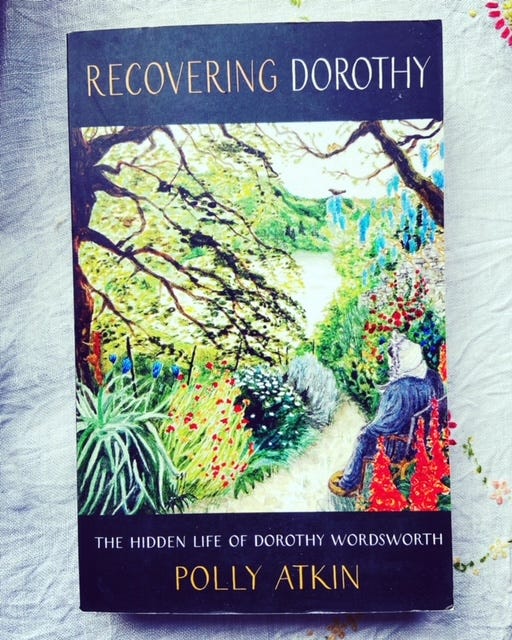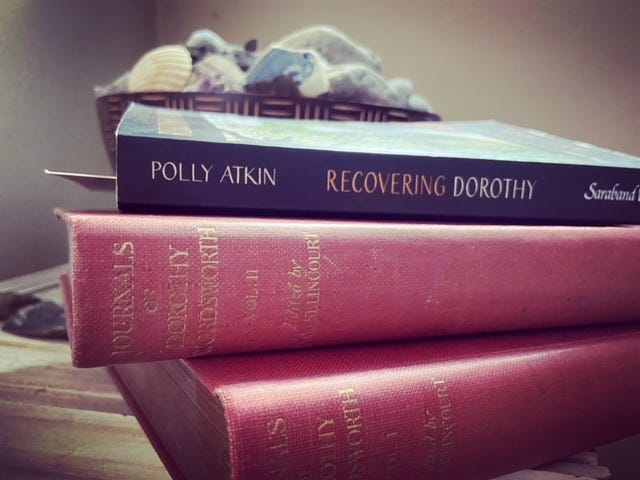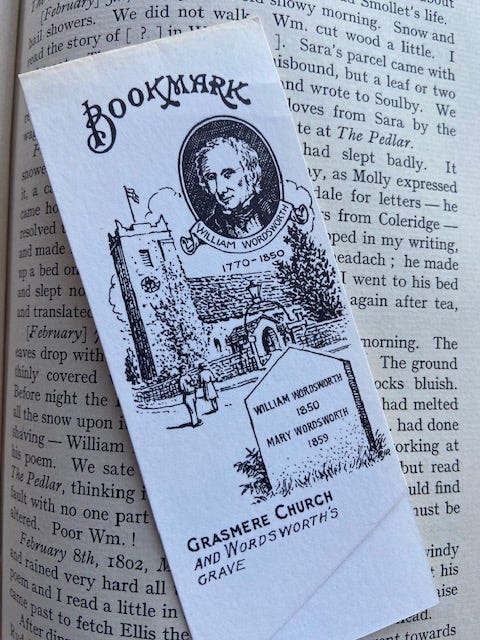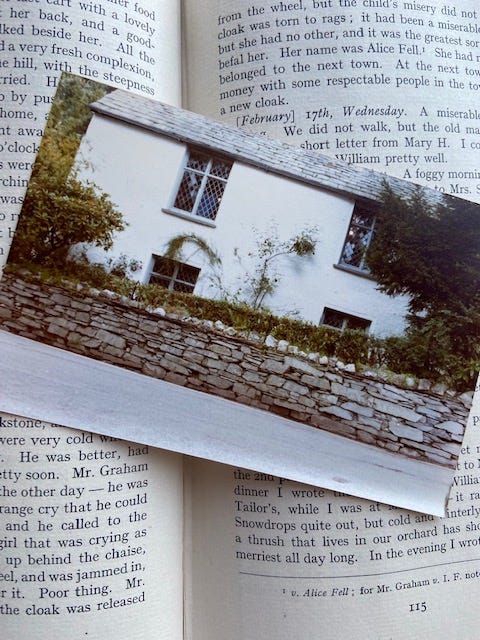A few weeks ago, in a moment of crushing procrastination around the big writing project, I decided it would be an excellent idea to suddenly and inexplicably become a vintage books dealer. Or rather, that’s how I sold the idea to myself. The reality was that while procrastinating, while doom scrolling and panicking and yet not quite addressing the anxiety and imposter syndrome that held me in its spell, I had scrolled through the local auction house website and seen two boxes of books, vintage books, that had not sold in the auction and were looking for owners. I saw the books in their neat cardboard box; their knowledge contained between covers that knew exactly what was inside them, a box full of purpose, a box of books by people who had reached the end stage of their writing projects, and I wanted to own the books. Books are a safe place for me, a kind of escape, but more than that, a place of connection. This box though, I suspect, was more about my need to see definition in the project I’m working on, a need to know that other writers had made it to their end point and I would too. I too would reach a place in which the project would be finished, contained, knowable. The thing about writing is that even with the most structured plan, there will be deviation. The story is a river working its way through a landscape. It will change the landscape as it grows and ebbs. This is unnerving if you are a person who needs to know what the outcome of any given situation will be. But this is also the beauty of it, and the not knowing the ending, as a reader, is the joy of a book.
Reader, I bought the books, for cheap and brought them home. They are currently judging me from the Georgian folding dining table that has a leg off and no drawer and is propped up leaning against the other junk in my office. The table is also a project. The table is an heirloom, it needs restoring, but that needs money, so it remains, semi-useful, sturdy enough if propped up well to hold two boxes of books that I certainly didn’t need.
In amongst the box was The Journals of Dorothy Wordsworth, vol. 1 and 2, edited by E. de Selincourt. These two red bound books, printed in 1941 were my justification for the boxes. I was reading Polly Atkins fantastic book Recovering Dorothy at the time, and had been on the lookout for Dorothy’s journals to accompany it. Polly’s book explores Dorothy as someone living with chronic illness. It’s a part of Dorothy’s life that is somewhat brushed under the carpet, the assumption being that after she became ill, after she became almost bed-bound, she became almost valueless. Dorothy, who had been a functioning part of the Dove Cottage creative enterprise, is then dismissed by biographers. Her life is viewed as being over from the time she becomes disabled. Polly Atkin raises questions around ideas of the ‘worthy invalid’ - the courageous, dignified, quiet invalid - that is seemingly acceptable to society, and the type of invalid that Dorothy was, sometimes: the invalid who makes animal noises and fights her carers. Polly Atkin holds a mirror up to the way that disability is viewed in the modern world. How much has changed? It’s a fascinating exploration of belonging and marginalisation. It made me want to read the journals for myself. And now, here, like a sign from the procrastination Gods, was my chance.
When I opened Vol. 1 of the journals, I found a bookmark from Grasmere with an illustration of Grasmere church and the headstone of William and Mary Wordsworth. I love finding bookmarks in second hand books. They feel like way-markers, signposts. Someone was here before me. Someone was reading this book, someone was imagining Dorothy Wordsworth, as I would be, as Polly Atkins had when she’d written her book. All these different versions of Dorothy have existed in the minds of the people who have read her journals, and the journals have linked us, this particular book is linking me to the previous owner, and to Polly Atkin and to Dorothy herself. I imagine Dorothy now, writing the journal, the scrit-scrat of her pen, the sound of the rain outside the window and me here, now, the rain outside my window and the unknown other reader, the book marker. It is like being a part of a silent book club.
When I turned the page, a photograph fell out. It is of Dove Cottage itself. It has the slightly over-exposed look of a vintage photograph and yes, when I turn it over - a date: Dove Cottage 24/8/79.
It’s almost my birthday. I was born in 1978. I am almost forty five and this particular set of books has been marked with this photo for maybe that whole time, all of the time I have been in existence. Dorothy’s words have been passed through the minds of all these people in that time. This is the power of the written word, that a journal, which is really just a collection of thoughts about the world and a record of life lived at one particular time, can set ripples in motion across hundreds of years. Someone so loved her work that they visited her house, all those years ago. It feels like the link is closed, we are part of a forty four year old book club, i am at the other end of this line.
In the photograph of the cottage the lights are on in the upstairs window. It is cosy, calming and I think again about the things that link us and how joyous it is to sit and read in a cosy room with the lights dappling the window, but also how wonderful it is to discuss books, to remind ourselves that we are connected through literature. Who took the photograph, I wonder. Are they alive or dead? Are all the books in the boxes come from their house? Is this a house clearance? I wish I could tell them, the previous owners, that I shall treasure them. That I shall always treasure them and if I do ever sell them, they will go to good homes. i wish I could tell them that I know the type of people who live in imaginations, that book lovers will always welcome the treasures of others.
Other News
Please join me for the Dawn Chorus Writing Group, which begins on 13th March. You can find out about it by following this link: Dawn Chorus. And if you fancy a more substantial writing experience, my magazine, Spelt has the fantastic Dr. RM Francis running a four week zoom course starting 6th March. You can find out about Burrowing Down to Base by following this link: Eventbrite. Want to come and ask me some questions about publishing the magazine? I’ll be at York St. John University, York on 6th March. Book your tickets by following this link: How to Get Published.
Until next time
x








